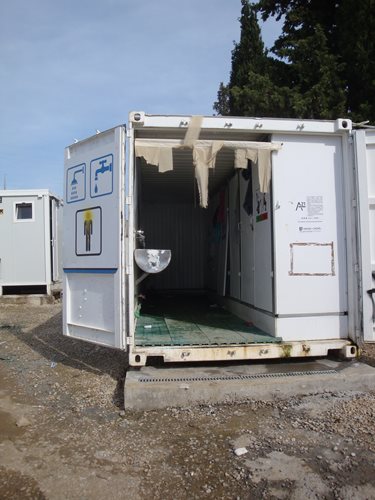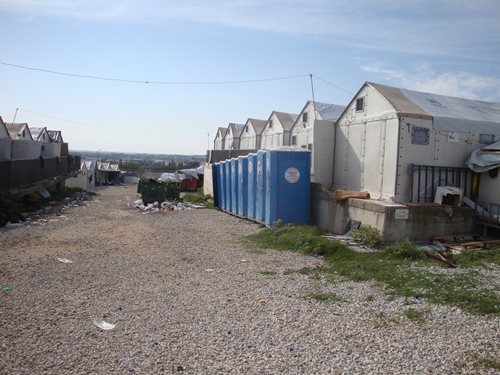When doctors and nurses get together we can be guilty of the bad habit of complaining about our patients. The vast majority of patients are delightful, grateful, understanding and kind but these are overshadowed by the few who are rude or demanding. It is the awkward or difficult patients who are at the front of our minds so when I mentioned “the girl with the bad teeth” everyone in the Médecins du Monde team immediately knew who I was talking about. No-one seemed to like her.
She’d been in my face again, tugging at my clothes, demanding treatment. She was often out and about on her own and I guess she was about nine years old. She always looked well and I’d already given her free tooth brushes and toothpaste. I'd also explained when the dentist visited the camp. Many of the refugees had awful teeth. Whether it was because Syria is one of those places with high natural fluoride in the water, whether it was poor attention to dental hygiene or all that sweet black tea they drink, I wasn’t sure. It was probably a combination of all three factors.
Whenever “the Girl with the Bad Teeth” spotted me she’d stand in my way, baring her teeth. They looked so odd, with a horizontal band of black between white enamel. Presumably this was a sign of malnutrition or her taking unsuitable medicines when she was younger. I even wondered if she'd been poisoned with lead some years before. But I tried to show no interest. This didn’t work, and if I tried to step round her she clung on. This happened many times each day. She was so annoying.
The nature of humanitarian work is that people come and go. Health professionals leave. Others arrive. Many of us use our holiday allowance to volunteer and we were used to people leaving and new staff joining the team. One such was a psychologist with a great deal of international experience and a special interest in working with traumatised children. Several of us asked her to see “the Girl with the Bad Teeth” and so I learned that I wasn’t the only one who found her irritating. One of the nurses wisely voiced her suspicions that the girl was having difficulties coping with the memories of what had happened to her before she’d fled from Syria.
Life isn’t easy for the Syrian refugees and other asylum-seekers who have arrived in northern Greece. Numerous camps have been set up where families live in tents and the army supply two hot grey meals every day. There are draughty toilet and shower facilities but no hot water. The camp “Bad Teeth” was living in was in a decommissioned car factory and most of the inhabitants were Kurds.
The psychologist saw “Bad Teeth” a few times and quickly started to establish what was going on. The girl was in the camp with her mother and younger brother. Her father was dead. The girl’s mother was withdrawn almost to the point of catatonia. She was clearly profoundly depressed. The psychologist was worried about the little boy and the mother but judged “Bad Teeth” as a survivor. After all, she’d made sure that everyone knew her. She’d started to speak some English to us humanitarian workers. Other children were starting to look up to her. Suddenly I could also see how much of a survivor she was. She’d been through hell and back but she’d moved on. Children are probably better at that than grown-ups. Even so, it had taken expert input for the psychologist to build on her strengths and make her less restless.
And it was through “Bad Teeth’s” annoying behaviour that we learned of her mother’s desperate state and started some treatment for her too. The little girl's behaviour reminded me – not for the first time – that I must always analyse why people are behaving in a way that I the medic find annoying or unacceptable. There is always a good reason but I often forget that. Especially when I’m busy, trying to get through that long line of patients waiting to see me.
 |
| Cold-water washing facilities in Diavata refugee camp in Ocober 2016 |
 |
| Toilet facilities in Diavata tented camp northern Greece in October 2016 |
For more words about the refugees and photos of the camps please take a look at my blog posts starting in September: see
In Diavata Camp.